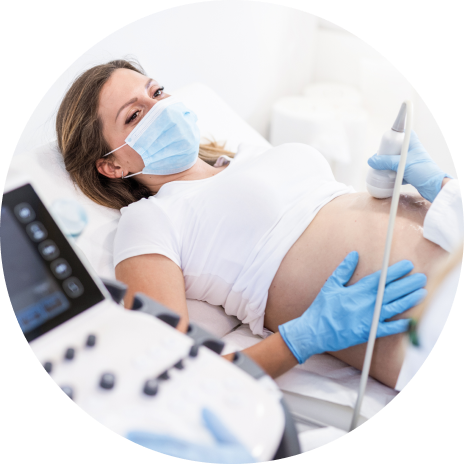
You have experienced nine months of changes in your body. Those changes will continue in the next couple of months as you decide whether or not to breastfeed, and as your body starts to recover from having the baby. It is important to take care of yourself during this time. Make sure to rest when you can and don’t try to do too much.
The effect of pregnancy and labour on a woman’s body can be tremendous. If you are trying to lose some additional pregnancy weight, make sure you do it in a healthy way and consult your GP before you start any type of diet or exercise plan. Don’t diet while breastfeeding. You’ll need to consume an additional 500 calories per day.
In addition to the physical changes to your body, you may feel depressed. This can be a very normal phase following childbirth. Fifty to 75% of new mothers feel a little sad or depressed after giving birth. These feelings can range from very mild to serious, but there is help. Be aware of your feelings and continue to talk with your family, friends, and your doctor. Sometimes, this depression will go away on its own, but medication or therapy may be needed. Both can help you feel better and get back to enjoying your new baby.
Breastfeeding offers many benefits for both mother and baby.
A healthy baby can benefit from breast milk, infant formula or a combination of the two.Breast milk is extremely nutritious and contains carbohydrates, proteins, and fats essential for a baby’s health. Breastfeeding, apart from helping babies get proper nutrition, can help mothers recover from pregnancy and delivery.
Expecting mothers planning to nurse should discuss breastfeeding with a doctor, nurse, or certified lactation consultant before giving birth. Although breastfeeding is a natural thing to do, most of us need to learn how.
If a mother does decide to breastfeed her children, she should understand that breastfeeding is a major responsibility that requires her to maintain excellent nutrition and health. Women who breastfeed should eat well-balanced, nutritious meals. Generous portions of whole grain breads and cereals, fruits and vegetables, and dairy products with an abundance of calcium are recommended. Most babies are born knowing how to breastfeed but sometimes it may take time for both of you to learn this new skill. The midwives and nurses in the hospital will help you and your baby start breastfeeding.
What are the treatment options for endometriosis?
There is no cure for endometriosis but pain relief and pregnancy can be achieved by the following methods:
Often, surgery is combined with medical therapy either before the procedure to decrease the size of the lesion or after, to lower the chances of recurrence.
What are the consequences of not treating endometriosis?
Left untreated, endometriosis can remain as it is or become more severe. Mild forms of endometriosis may improve with time and most often resolve after menopause. Your decision to treat or not to treat is based on balancing the effects of endometriosis on your life and the risks of treatment.
When should I consider watchful waiting of endometriosis?
Your endometriosis specialist in Melbourne may suggest watchful waiting if you have mild endometriosis, to observe the course of the disease and if you are approaching menopause.
